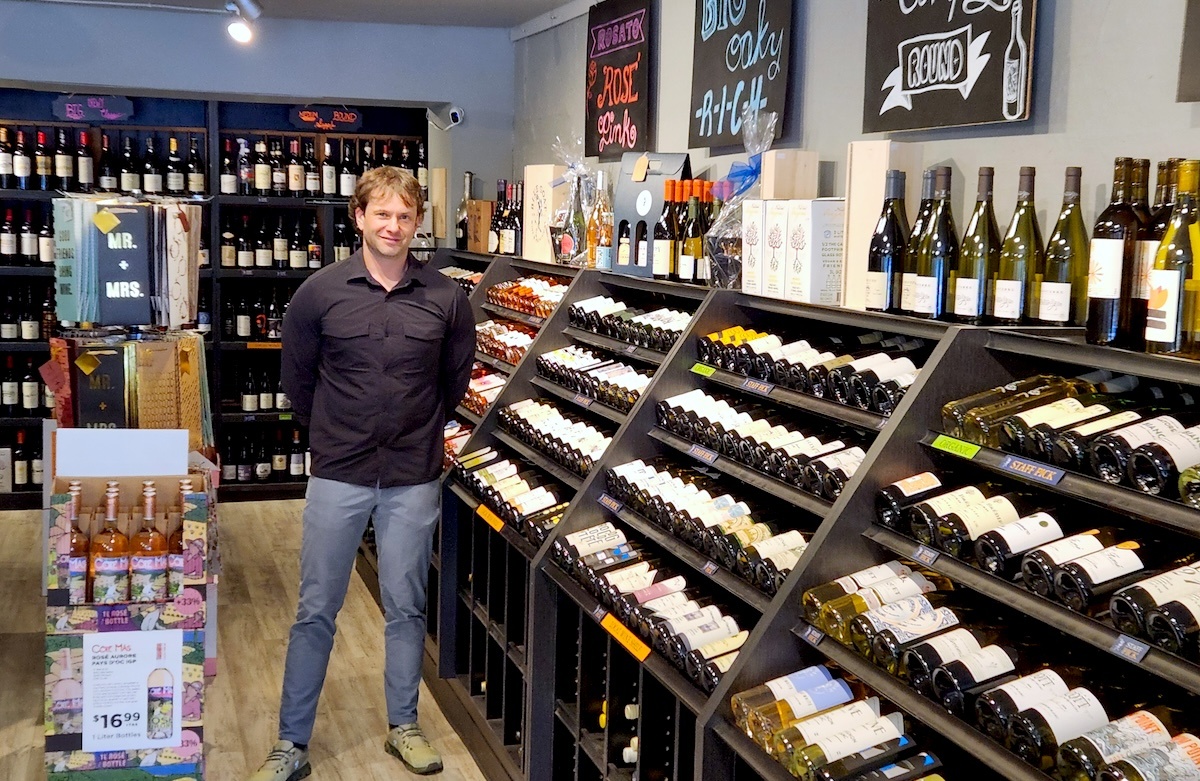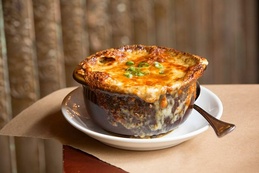
Tariffs Loom Over the Wine Industry
Local businesses concerned over tariffs, inflation, and global relationships
By Art Bukowski | Sept. 20, 2025
Tariff talk has been rampant in recent months, with much discussion about how these age-old economic tools applied with vigor by President Donald Trump will impact a variety of businesses across the nation.
Here in northern Michigan, the wine industry is rapidly approaching cherry production as the region’s most iconic agricultural endeavor. Dozens of wineries and a handful of specialty wine and food shops have made the area a hotspot for oenophiles. But those businesses are starting to feel the sting of the new importing and exporting rules.
We checked in with specialty shops and a beloved winery to learn more about the impacts (current and anticipated) of national tariffs on their bottom lines.
Bracing for Impact
Long story short, no one is feeling major impacts—yet.
But everyone we spoke to has varying degrees of unease about the long-term prospects of tariffs. This is particularly true for wine shops, which are known for bringing in great wine varietals (and other treats, edible and not) from across the world.
Sebastian Garbsch is a co-owner The Blue Goat Wine & Provisions, an iconic wine shop in Traverse City near the base of Old Mission Peninsula. He says some of his distributors have already paused selling certain wines based on tariff-induced price increases, and he expects that trend may continue.
“It’s not just that it might cost us more, but we might not be able to get certain wines at all if the importers deem it unprofitable,” he says. “And that stinks, because in many cases we’ve gotten some great organic and biodynamic—but affordable—wines that we now might not be able to get.”
Ultimately, Garbsch says, tariffs make it harder for a shop like Blue Goat to perform to customer expectations in terms of a deep and broad selection of wines.
“At Blue Goat, we try to have the best of local wines and the best of the entire world,” he says. “Now, it feels like the world has gotten a little smaller.”
Kate Stassen owned the famed Riverside Inn in Leland for many years before opening Peninsula Provisions in Lake Leelanau in 2023. This specialty shop prides itself on many imported foods in addition to a wide selection of wine.
Like Garbsch, she’s seen some wines drop off the list, and she’s had no choice but to pass the higher costs of those that make it through on to the consumer. Stassen believes the full impact of tariffs has not yet been felt due to a variety of factors, including some product that was already stateside before they took effect.
“So far, the biggest increases have been two or three dollars on everyday-priced wines, and that’s definitely not enough where someone won’t pay that,” she says. “But I think what we’ll start seeing in October and November is when it goes from maybe $16 to $21, and that’s when we’ll start seeing [consumers forced out of their comfort zones].”
Garbsch is also worried things could get worse before they get better.
“It’s really the fear of how much more [impact] there could be if this doesn’t get sorted out sooner rather than later,” he says.
Not Just Tariffs
Garbsch made it clear that consumers should expect to see higher prices these days for many reasons beyond tariffs, which are just the latest blow to a system already strained by inflation.
“Shipping is up, labor is up, packaging is up. Tariffs are just a part of the puzzle. Our utilities are up tremendously,” he says. “Everywhere you go you’re getting nickeled and dimed, and it’s tougher for small businesses.”
Stassen is already seeing significant hikes on cheeses, olive oils, specialty meats, and more, and she cites the same mixture of factors at play.
“Some of my specialty charcuterie meats and cheeses are American, but they’re going up because their inputs are more expensive or their farm costs are more expensive,” she says. “And then the ones that are coming in are getting tariffed…no matter where it’s coming from, it’s going up in price.”
Garbsch says that tariffs—and to a larger extent, all increased costs—do present a “hidden opportunity” for local, specialty shops like his. Staff there will be the best resource for customers who can no longer get or are priced out of their favorite wines.
“Our job is always going to be to just keep finding those value wines that are made the right way,” he says. “And that might be the advantage we have as small businesses. We have excellent service and can give customers other options. That’s where we shine.”
Stassen agrees. It’s yet another chance to apply their expertise, she says.
“Even if someone always bought an $80 bottle of Barolo, they’re probably not going to buy it when it’s a hundred. They’re still going to want something around $80. So we have to find something to replace that bottle that they loved that’s hopefully as good or almost as good, but is $20 less,” she says. “It will make our job a little more difficult, but that’s ok.”
Out in the Vineyards
Wineries themselves aren’t immune to the impacts of tariffs. Marie-Chantal Dalese, CEO of Chateau Chantal on Old Mission Peninsula, said 10 percent tariffs on European corks are now in effect, for instance. But she’s a bit more concerned about another key component: Glass.
Fortunately, the problem is mostly in the hands of suppliers to solve (for now).
“We haven’t had dramatic supply chain fluctuations as of yet, but glass is certainly a big one to keep an eye on, as a lot of that is coming from Mexico or China,” she says. “Some of these producers have already switched to plants in countries with less of a tariff. Those companies are definitely more affected and are trying to play the game of moving around as best they can to avoid it.”
Some local wineries do in fact import foreign wines to supplement their own offerings. Chateau Chantal buys Malbec in bulk from a winery in Argentina that it used to own, and that importing will now be exposed.
“It’s something we can’t grow here—one of those big, deeper, dry reds—and so that’s likely going to be hit with a tariff as it comes through,” Dalese says.
Ultimately, Dalese’s biggest fear stems from retaliatory trade actions that could eventually impact her business and those like it.
“The thing that I am worried the most about are the indirect effect of the tariffs, [namely] that Canada shut off all American wine,” Dalese says. “That’s a really big market for a lot of the big players, though probably not for many here in northern Michigan. But any one of us that is distributed has a distributor that is probably receiving a whole lot of pressure from those big players saying ‘We can’t sell to Canada, you need to move this for us domestically.’”
Local wineries won’t be able to offer the deep discounts and other promotions that the big companies can when they need to move product, Dalese says. What this all means is increased competition and stress in an industry that’s already feeling plenty of it.
“It’s on top of the fact that there is already an oversupply, a glut of wine, and wine sales are down,” she says. “So you combine all those factors and you start to feel the pressure.”
Trending

Gaming That’s Out of This World
Anyone with an appreciation for the late 1970s and 1980s might enjoy the sound of vintage video games and their incredible l… Read More >>
Anxiety, Screens, and Self-Esteem
If adulting feels hard sometimes, let it be a reminder that growing up can be, too. Data from the National Alliance on Ment… Read More >>
Hope for the Holidays
This time of year isn’t always the easiest for many folks in our community, especially when they’re grieving the… Read More >>


